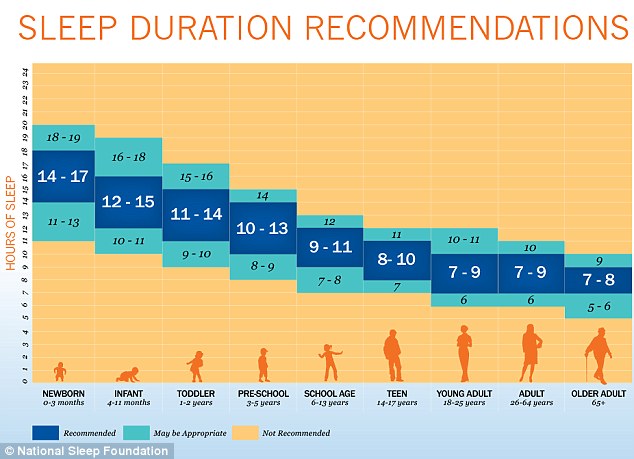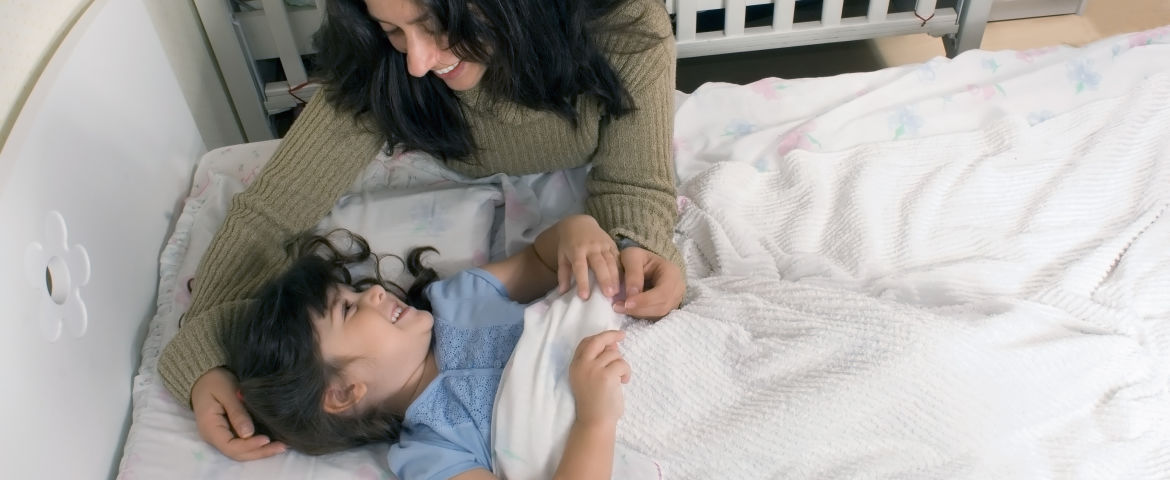Getting a proper amount of sleep is crucial to your child’s success. And for most, “back to school” means early mornings, long days in class and late nights filled with sports, homework or other activities. The busy schedules that begin each fall beg for good, healthy sleep. So how can you help your children transition from their relaxed summer schedule to a successful back to school sleep schedule? Here are six tips that will help you establish a good night’s sleep for your child during the school year, no matter what grade they’re going into.
1. Know how much sleep your child needs based on their age.
The graphic below from the National Sleep Foundation indicates appropriate amount of sleep in hours, based on age. 
2. Keep them active.
The more exercise your child gets throughout the day, the more energy they’ll have burned off. This will make it easier for them to wind down at the end of the night. Enjoy the last few days of summer staying active as a family, and encourage activities such as swimming, biking, playing tag or simply having fun exploring the outdoors. If you make sure physical activity remains a priority in your child’s routine, you can almost ensure they’ll get a good night’s sleep.
3. Help them eat Healthy.
Nutrition impacts the quality of your sleep. According to the Cleveland Clinic, some foods raise serotonin – a key hormone that promotes healthy sleep. Try incorporating complex carbs, lean proteins and fresh herbs into dinner recipes to increase your family’s serotonin levels. 
4. Have them power down before bed.
Did you know electronics emit a blue light that tricks our minds into believing it’s daytime? What’s more, much of the content we consume on our phones and tablets actually stimulates the brain, rather than settles it. That’s why it’s recommended all electronics should be turned off at least an hour before bedtime. While it may not be what you kids want to hear, their well-rested body and mind may thank you in the morning.
5. Create a relaxing bedtime routine.
It’s necessary to find a bedtime routine that works for your child. From enjoying a relaxing bath after dinner, to reading a few chapters of a book, to doing a bedtime yoga sequence, creating the right routine can be crucial to your child getting to sleep and staying asleep. The goal is to create a routine that tells their brain it’s time to relax and settling down.
6. Make the bedroom a sleep sanctuary.
Take the opportunity to create an ideal sleep environment. Their bed should only ever be used for sleep and their bedroom should be uncluttered. In addition, during bedtime, the room should be as dark as they’ll tolerate and cool, between 65 to 72 degrees. Try a sound machine or fan to create rhythmic white noise that can be relaxing and help drown out other sounds outside or in the house.
Lastly, practice what you preach. These tips are not only for kids. You can improve your own daily routine by getting a good night’s sleep and increasing your energy throughout the day. And it sets a positive example for your kids. They’ll feel more inclined to cooperate if the back-to-school sleep program is for the whole family.


